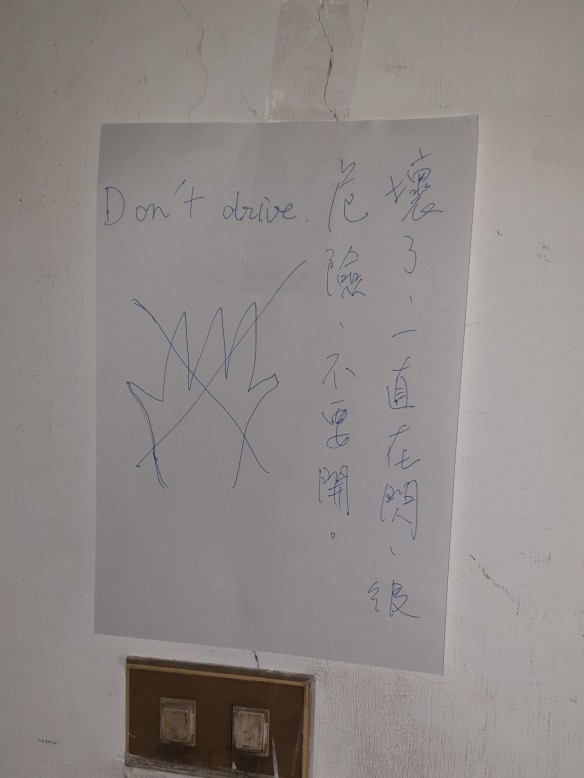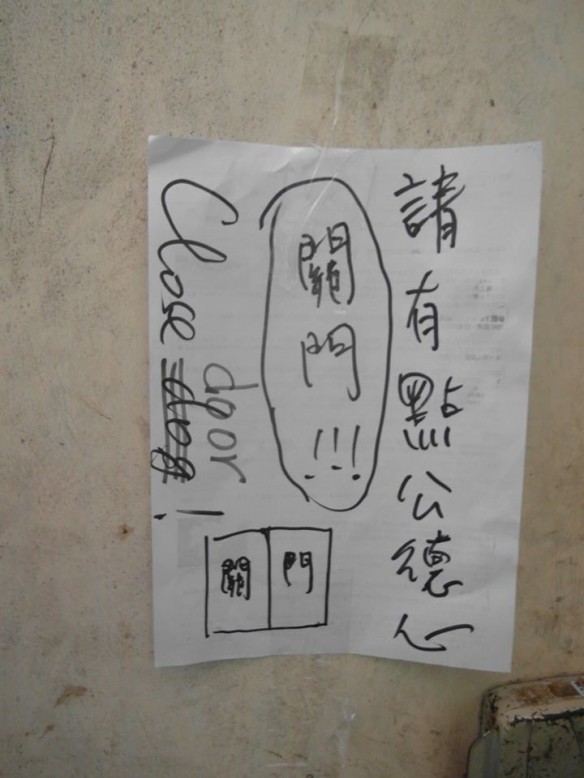My note-writing neighbour (you can see their doctoral thesis here) has been at it again, although, to be fair, this doesn’t rank up there with their more passive-aggressive notes (although I would have appreciated a 「請」 thrown in there somewhere). I almost identified with them on this note, as it represents a phenomenon I often encounter when learning other languages, the tendency to assume that a specific usage of a multipurpose verb in your language can apply to all the usages of the verb in your target language, illustrated brilliantly below:

壞了,一直在閃、很危險、不要開。 Don’t drive.
Broken, it keeps flashing, it’s dangerous, don’t turn it on.
「開」 in Chinese means “to start” or “to turn on”, in conjunction with 「車」 it can also mean “to drive”. So I’m guessing they googled “不要開” and got “Don’t drive.” I guess the solution is to always search for the terms you Google translate to see if it matches the idea you were going for and is used commonly in the target language. The only example I can think of going the other way is the tendency of foreigners to use 「是」 for adjectival phrases in Chinese, 「我是熱」, for example, as an overly literal translation of “I am hot.” Can you think of any examples that fit the brief more accurately?
My neighbour clearly hasn’t been taking notes since I corrected their previous note which was either on door closures or dog euthanasia:

